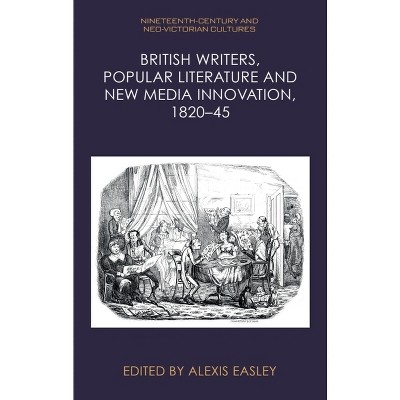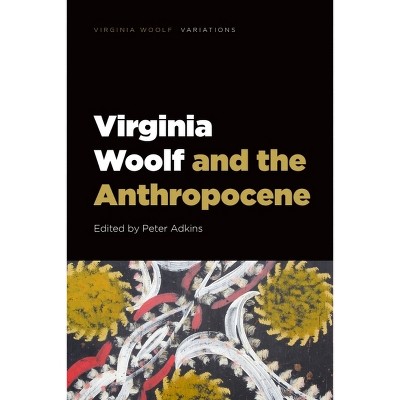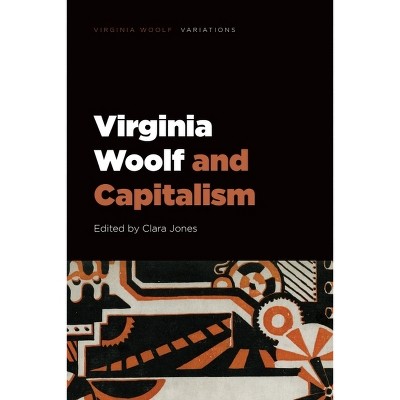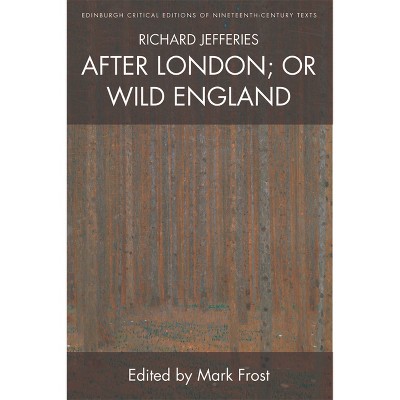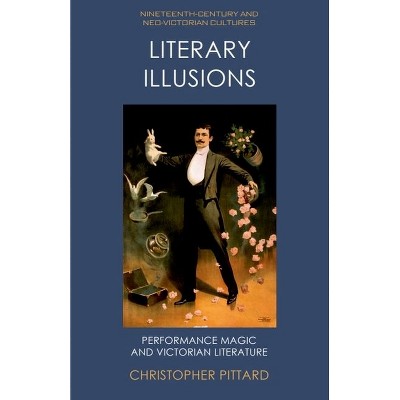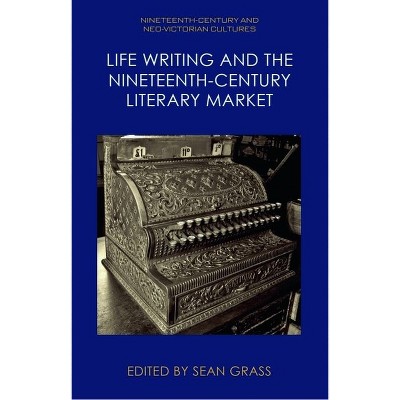Sponsored

Virginia Woolf and Nineteenth-Century Women Writers - by Anne Reus (Hardcover)
In Stock
Sponsored
About this item
Highlights
- This book examines Virginia Woolf's influence on the literary afterlives of nineteenth-century women of letters including Jane Austen, Mary Russell Mitford, Elizabeth Barrett Browning, Charlotte Brontë, George Eliot, Margaret Oliphant and Mary Augusta Ward through her journalism.
- About the Author: Anne Reus is an Independent Scholar.
- 224 Pages
- Literary Criticism, Modern
Description
About the Book
The first comprehensive analysis of Virginia Woolf's literary biography.
Book Synopsis
This book examines Virginia Woolf's influence on the literary afterlives of nineteenth-century women of letters including Jane Austen, Mary Russell Mitford, Elizabeth Barrett Browning, Charlotte Brontë, George Eliot, Margaret Oliphant and Mary Augusta Ward through her journalism. Woolf's responses to her literary predecessors provide new insights into her self-positioning within the literary canon and the interplay of biographical innovation and Victorian legacies in her non-fiction. This study demonstrates that Victorian narratives and tropes of female professionalism continue to shape Woolf's representations of nineteenth-century women writers even at the heyday of her Modernist fame. It contextualizes the overt feminism of A Room of One's Own within Woolf's more ambiguous literary biography to argue for its status as a transitional, post-Victorian body of work.
From the Back Cover
The first comprehensive analysis of Virginia Woolf's literary biography This book examines Virginia Woolf's influence on the literary afterlives of nineteenth-century women of letters through her journalism, including case studies of Jane Austen, Mary Russell Mitford, Elizabeth Barrett Browning, Charlotte Brontë, George Eliot, Margaret Oliphant and Mary Augusta Ward. Woolf's responses to her literary predecessors provide new insights into her self-positioning within the literary canon and the interplay of biographical innovation and Victorian legacies in her non-fiction. This study demonstrates that Victorian narratives and tropes of female professionalism continue to shape Woolf's representations of nineteenth-century women writers even in her heyday of her Modernist fame. It contextualises the overt feminism of A Room of One's Own within Woolf's more ambiguous literary biography to argue for its status as a transitional, post-Victorian body of work. Anne Reus is an Independent Scholar. Her research interests are women's writing and life writing in the nineteenth and twentieth centuries. She has published on Margaret Oliphant, Mary Elizabeth Braddon and Virginia Woolf and she is co-editor of Virginia Woolf and Heritage (2017).Review Quotes
...this study is accessible and suited to readers who wish to go beyond study of Woolf's novels to her critical work on 19th-century women's authorship. Ultimately, through writing about the literary output and domestic lives of her predecessors, Woolf turned the lens back on herself.
Summing Up: Recommended.
Mining the rich resources of Woolf's essays and reviews on a range of nineteenth-century women writers, Anne Reus boldly establishes the ambivalent stance Woolf took to her predecessors, with particular attention to her uses of literary biography. This readable, well-researched and nuanced analysis illuminates Woolf's complex attitudes to her foremothers.
--Mary Jean Corbett, Miami UniversityReus examines Woolf's literary criticism as it relates to, and was influenced by, Woolf's own experiences and by Victorian biography and gender ideology of the day. [...] this study is accessible and suited to readers who wish to go beyond study of Woolf's novels to her critical work on 19th-century women's authorship. Ultimately, through writing about the literary output and domestic lives of her predecessors Woolf turned the lens back on herself.
Summing Up: Recommended.
It is no easy feat to write about Woolf's criticism without flattening its humour, nor to engage seriously with her political arguments without betraying the lightness of her touch and the slipperiness of her style, but Reus manages exactly this [...] The result is a study which is frequently critical, often funny, and always fundamentally sympathetic, which deserves to become essential reading in its field.--Clare Walker Gore, Lucy Cavendish College "Journal of Victorian Culture"
Reus's research, read collectively, signals a long-overdue and comprehensive cross-examination of nineteenth-century women writers and the agent of their descendants. [...] This excellent book would be of interest to scholars of both Victorian and Modernist studies, especially for those working on biographies, historiographies, epistles and essays of women writers, since - from an original vantage point - Reus casts a new light on women's writing.--Pengfei Zhang, Zhejiang University "Women's Writing"
About the Author
Anne Reus is an Independent Scholar. Her research interests are women's writing and life writing in the nineteenth and twentieth centuries. She has published on Margaret Oliphant, Mary Elizabeth Braddon and Virginia Woolf, and is co-editor of Virginia Woolf and Heritage(Clemson UP, 2017).

